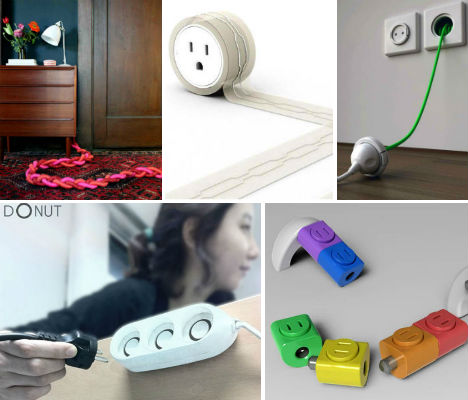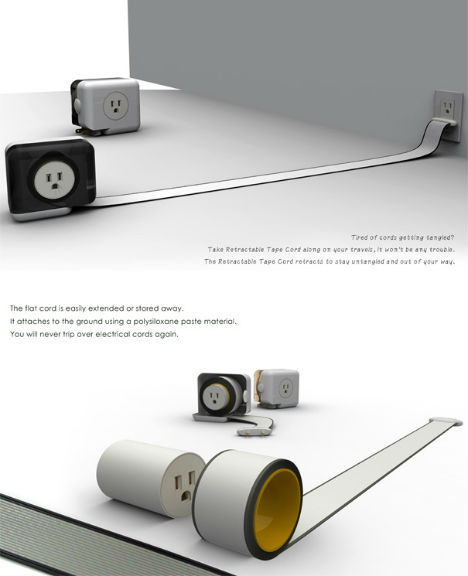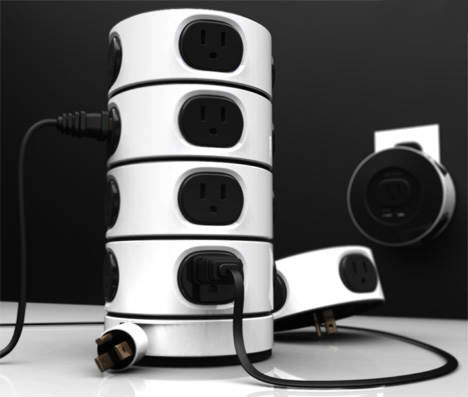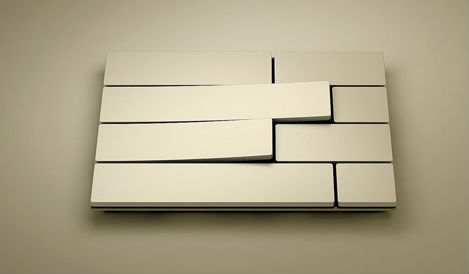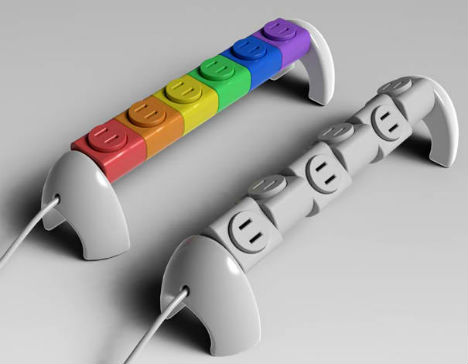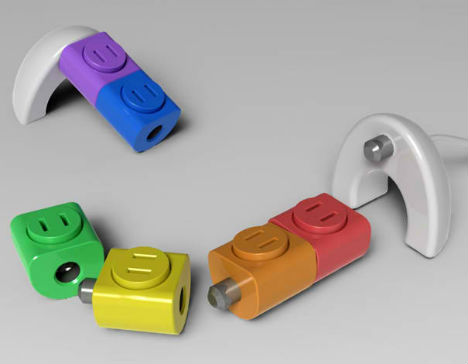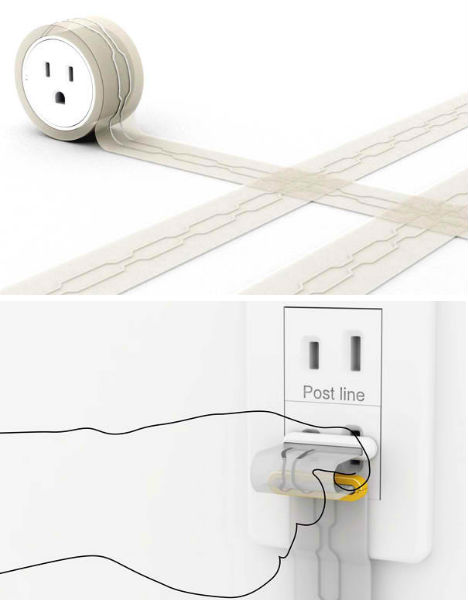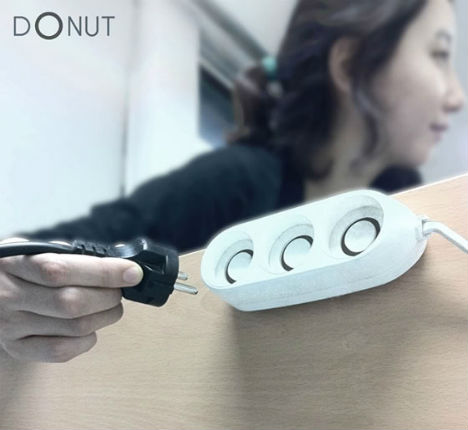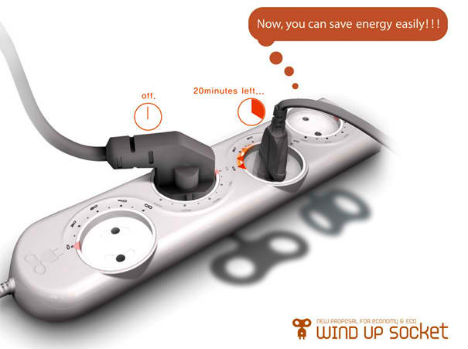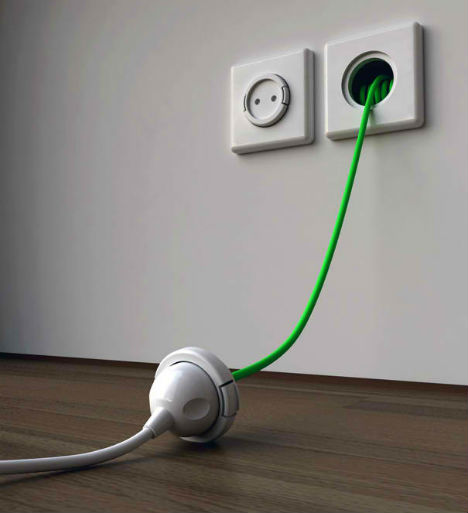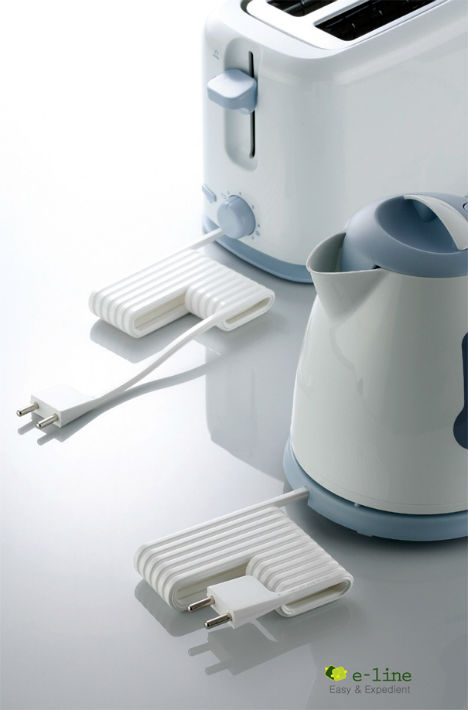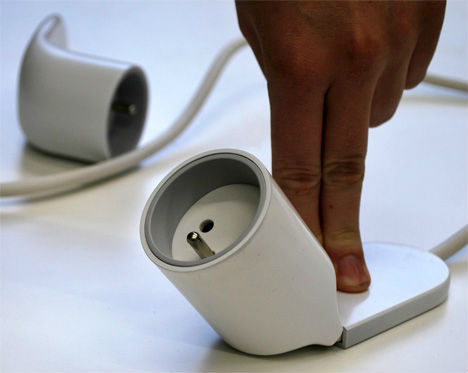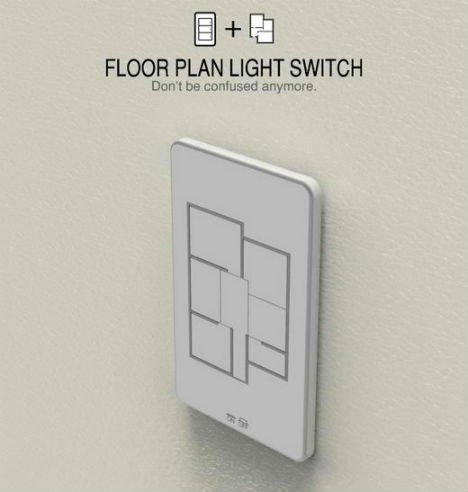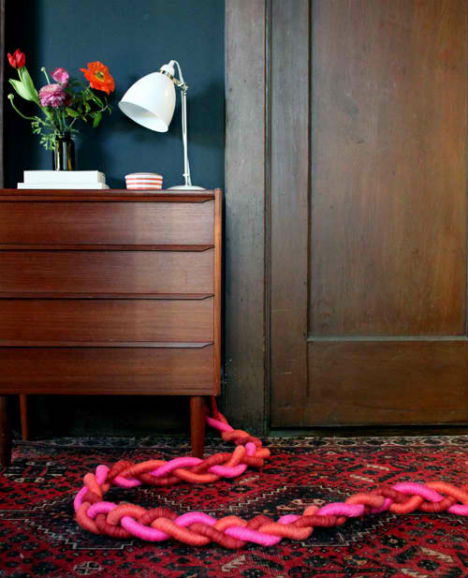We use power outlets and extension cords every day, yet they seem to have been left behind when it comes to both aesthetic and practical improvements over the last few decades. These 13 (more) products, concepts and DIY projects include power outlets with built-in retractable extension cords, super-flat tape cords that are invisible under rugs, and modular power strips that can be customized to your electricity needs.
Super-Flat Retractable Tape Cord
This extension cord works just like a tape measure, with the cord extending from the base unit to plug into an electric outlet. Just give the tape a tug and it’ll wind back up inside the unit.
Power Bridge Hides Unsightly Plugs
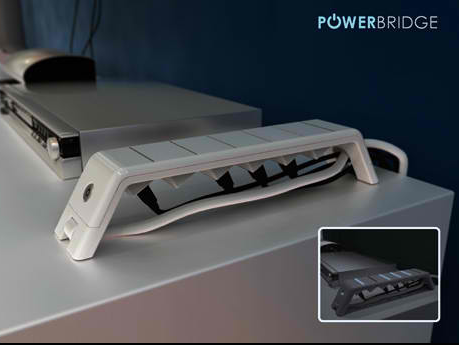
We don’t really like looking at a mess of plugs in a power strip, so why have them on top? The Power Bridge by Hyukjae Chang flips the strip, keeping the visible side clutter-free. Each outlet also has an indicator light that lets you know how much power that particular device is using.
Belkin TimeOutlet
In the Belkin TimeOutlet, four quadrants corresponding to various times of day keep your lights and devices powered up only during the time that you actually use them, cutting off the power at other times.
Lithoss Frameless Switch
Light switches become design details with the Lithoss Frameless Switch, which uses piano-like keys to turn lights on and off.
Rotating 360 Multi-Outlet Strip
The variety of oddly shaped plugs makes it hard to fit all of your gadgets onto a single power strip. The Rotating 360 ensures that they’ll all fit with a modular design with individual sockets that can be rotated to the side or bottom, or removed altogether if they’re not needed.
Totally Flat Tape Cord is Perfect Under Rugs
There’s no need to tape extension cords to the floor with ugly duct tape or run them along walls and ceilings to keep them out of the way, when they’re entirely flat – and work like tape themselves. This design by Chen Ju Wei uses a sticky electrostatic paste material and circuit-printing technology to embed electric wires within a length of reusable tape that can be wiped clean when needed.
Donut Outlet Features Circular Design
Isn’t it annoying when you’re trying to plug a cable into an outlet you can’t see, and just can’t seem to line up the prongs? With the DONUT outlet, a circular design allows the plug to be inserted from any angle.
Energy-Saving Wind-Up Sockets
Sometimes you only need a light or appliance to be on for a set period of time, but you forget to unplug it afterward. The Wind Up Socket keeps that from happening with built-in timers that cut off the electricity after the chosen length of time.
Recoiling Wall Socket
The ‘Rambler Socket’ by Meysam Movahedi features a 1.5-meter extension cord on a reel that fits within the wall, eliminating the need for extension cords. When you don’t need it, it simply goes away.
E-Line Cord Wrapping System
The habit of wrapping extra cord around an appliance can burn you – literally – if you forget to unwrap it before using the item, especially if it’s something that gets hot, like a toaster or electric kettle. The cord on the E-line wrapping system is coated in such a way that it coils into a compact configuration when it doesn’t need to be stretched.
Plug Extension Cord Project
No need to reach under the desk to unplug your computer or phone charger from an extension cord. The Plug Extension Cord Project by Anton Zetocha provides a little flat piece beside the outlet that makes it easier to use one hand or even your foot to pull the plug.
Floor Plan-Shaped Light Switch
More people would turn off all the lights before leaving the house if it were more convenient. This concept is a master switch for all the lights in the house, shaped like your floorplan. You simply press the shape of the room where you want to turn off lights.
Sculptural Braided Extension Cords
If you can’t hide your extension cords, why not show them off? Design Sponge offers a DIY project that’s admittedly not practical, but makes these eyesores infinitely more visually interesting. Three ordinary power cords are wrapped in plastic tubing and then covered in colored yarn before being braided together. The result is basically a piece of art for your floor (that you’ll probably trip over more than once.)
